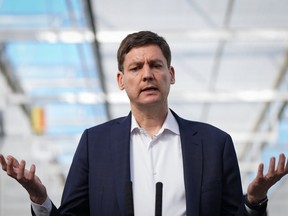WASHINGTON — The United States on Monday said it was slashing the number of Chinese employees permitted to work at the U.S. offices of major Chinese state-owned media outlets to retaliate against Beijing over its “long-standing intimidation and harassment of journalists.”
Citing a “deepening crackdown” on all forms of independent reporting inside China, administration officials said Beijing’s attack on free speech was worse than it was a decade ago, comparing it to that of the Soviet Union at the height of the Cold War.
China last month revoked the visas of three Wall Street Journal reporters in Beijing after the newspaper declined to apologize for a column with a headline calling China the “real sick man of Asia.” Another reporter with the paper had to leave last year after China declined to renew his visa.
“For years, the government of the People’s Republic of China has imposed increasingly harsh surveillance, harassment, and intimidation against American and other foreign journalists operating in China,” U.S. Secretary of State Mike Pompeo said in a statement.
Effective March 13, Washington will be capping the number of U.S. based employees of Xinhua News Agency, China Global Television Network, China Radio International, China Daily Distribution Corp to a total of 100, from 160.
Monday’s decision was not particularly linked to the Wall Street Journal case, senior state Department officials, speaking on the condition of anonymity, told reporters.
“We’ve been imploring the Chinese for years and years now to improve their treatment of journalists in China. So, this is not linked to any one particular incident,” one U.S. official said, but added that the expulsion of Journal reporters was a “fairly egregious” example.
The four outlets were among five designated by the United States as foreign embassies earlier this month, as a first step of this move.
Tensions between the two superpowers have escalated since President Donald Trump came to office three years ago, with disputes over issues ranging from trade to accusations of Chinese spying in the United States and to U.S. support for Taiwan.
On Monday, the Foreign Correspondents Club of China said in a report that the Chinese government has “weaponised” visas as part of a stepped-up campaign of pressure on foreign journalists.
“It is our hope that this action will spur Beijing to adopt a more fair and reciprocal approach to U.S. and other foreign press in China,” Pompeo said, while State Department officials said Washington was ready to take further action if Beijing retaliated.
“If in fact they decide to take this in a further negative direction however of course..all options would be on the table. I can’t tell you what in particular we would do, but we’d sit down review the circumstances and then consider all of our options,” the official said.
The personnel caps would be placed on the entities as opposed to people hence it would be up to the media outlets to decide the necessary staffing cuts, the officials said.
While the United States will not be sending anyone back, the officials acknowledged that the Chinese individuals whose visas are contingent on their ability to work in the United States may be forced to leave the country.
The United States would also be announcing in near future limits on duration of stay for Chinese citizens, administration officials said. (Reporting by Humeyra Pamuk and Steve Holland Editing by Alistair Bell)























